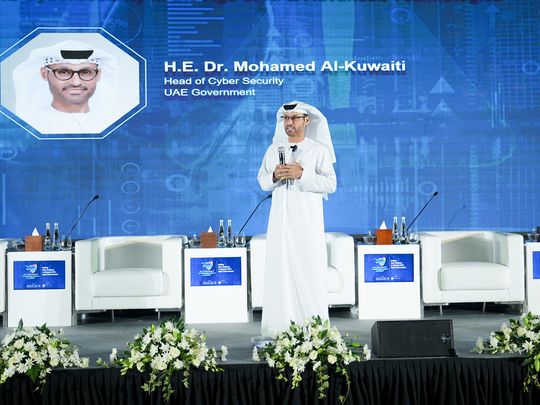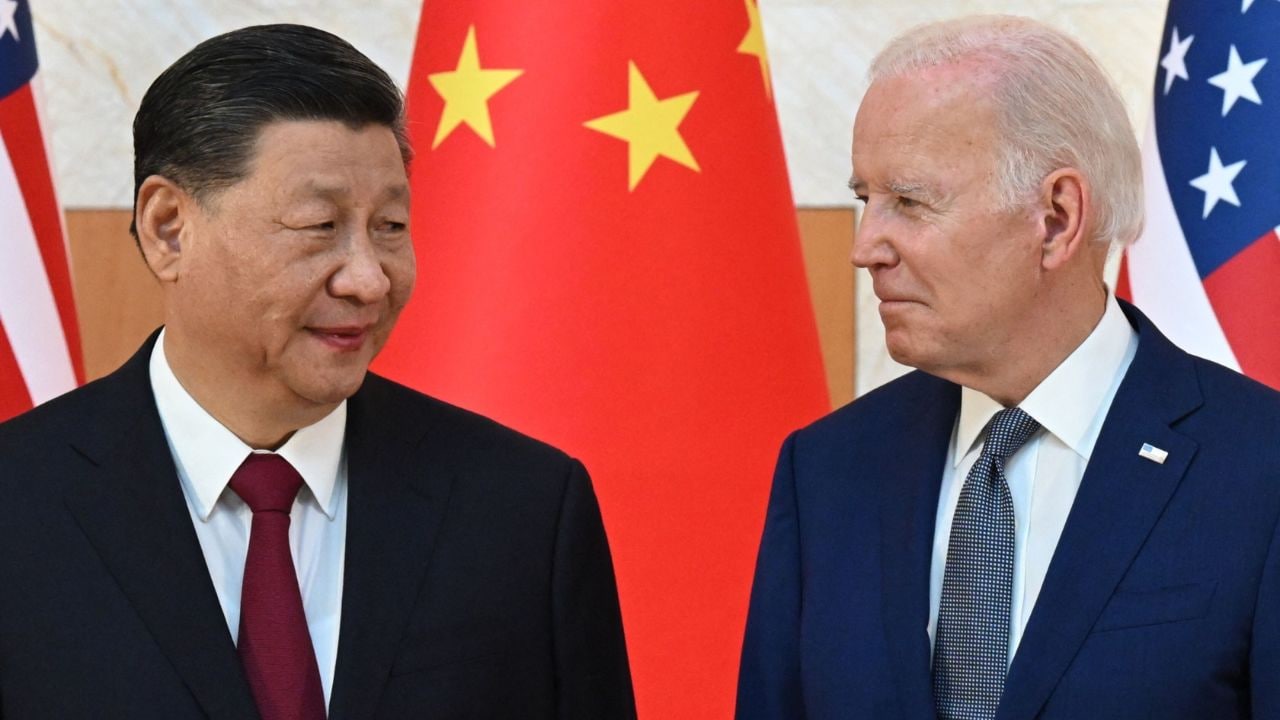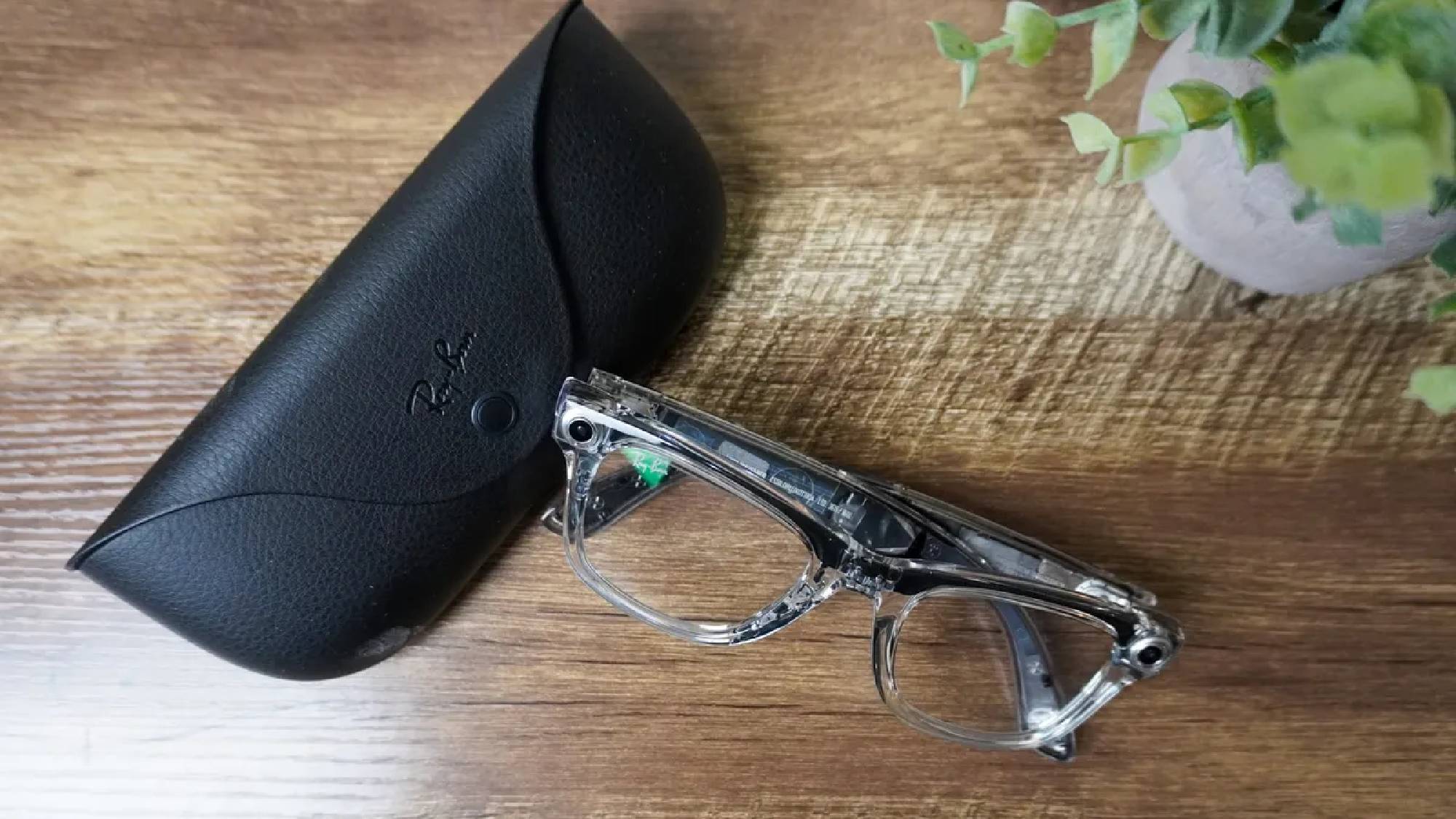
In an era of escalating digital threats, the Government Cybersecurity Summit, hosted by the UAE Cybersecurity Council on November 5, 2024, at the Ritz-Carlton Abu Dhabi, marked a pivotal gathering of global thought leaders in cybersecurity. The summit was the perfect platform for policymakers, industry leaders, and cybersecurity professionals to discuss the increasingly sophisticated challenges the digital infrastructure is facing across both public and private sectors. Among a slew of discussions and presentations, experts also explored new horizons in the domain of cybersecurity even as they suggested solutions to the ever-increasing risks that industries are facing.
The numbers say it all: The Middle East cybersecurity market is expected to grow to $23.4 billion by 2028, while the UAE market alone is expected to double to $1.07 billion by 2029, making the region poised to become a significant player in cybersecurity innovation and investment.
Against this backdrop, the summit's focus on advanced technologies like AI, machine learning, and blockchain highlighted the importance of cybersecurity as a critical pillar for regional growth and stability. Participants were introduced to cutting-edge solutions and insights on trends shaping the future of cybersecurity. Key topics included securing critical infrastructure, incident response strategies, and the role of cyber intelligence in threat anticipation and real-time mitigation.
The summit also dedicated substantial attention to policy and governance frameworks necessary for adapting to the ever-evolving digital landscape. H.E.
Dr. Mohamed Al-Kuwaiti, the Head of Cyber Security at the UAE Cybersecurity Council, delivered the keynote presentation titled “National Security and Cybersecurity in the Age of AI & Advanced Technologies.” Dr.
Al-Kuwaiti highlighted the dual role of AI in cybersecurity as both a potent tool for enhancing security, and a vector for emerging threats. He stressed the necessity of leveraging AI for threat detection, incident response, and predictive analytics to stay ahead in the global cybersecurity race. However, he also acknowledged the potential dangers of AI-powered cyberattacks, calling for international cooperation to manage the risks inherent in AI adoption.
In a discussion, H.E. Eng.
Matar Almehairi, Assistant Secretary General of the Federal National Council, discussed the UAE's proactive approach, focusing on "self-healing" technologies. Rather than merely defending, Almehairi envisions resilient systems that adapt and counterattack in real-time. He highlighted the UAE’s robust cybersecurity network, with dedicated cyber centers across the country facilitating collaboration and intelligence sharing.
The integration of AI and machine learning into this ecosystem promises to heighten defenses, he told Gulf News on the sidelines of the event. “When you're ranked high politically or economically, people target you. We’re the third most attacked country in the world, facing threats like phishing emails and more,’ he said.
“This creates the challenge of staying ahead of attackers. Another challenge is how we define hackers; some people see hacking as something positive, even calling it "ethical hacking." But we must redefine such things as criminal acts, as it encourages dangerous perceptions.
” Adel Almehairi, Director National CERT Policy & Programs Department, Telecommunications and Digital Government Regulatory Authority (TDRA), made it clear that the adoption of AI and ML in the cybersecurity industry is shifting the focus of blue teams and SOCs from reactive approaches to more proactive and predictive defensive measures. “By providing us with enhanced detection capabilities and fully automated workflows, AI and ML give us the edge we need to stay one step ahead of emerging threats,” he said. “However, for AI and ML to really add value in the UAE within the next 5-10 years, we need to collaborate with each other and ensure that the knowledge and experience gained from using those emerging technologies is echoed throughout the nation.
” Almehairi had a few points to offer on how the country can adapt frameworks to stay ahead of evolving global cyber threats. “A successful national cybersecurity framework should be built around protecting the nation’s digital infrastructure and the people’s data as those are the most critical assets of any nation. The UAE’s visionary leadership has allowed us to take a proactive approach on digital transformation and the continuous collaboration between all the different sectors in the UAE has allowed us to create a robust national cybersecurity framework.
We need to continue and enhance this collaboration to stay ahead of global threats.” Vijay Velayutham, Principal Information Security Officer at the Ministry of Energy and Infrastructure, said the rapid integration of AI underscored how machine learning and imminent quantum cryptography advancements bring unprecedented pressure. Quantum computing’s potential to break into current encryption systems will require both public and private sectors to fortify their defenses.
The shift to hybrid work post-COVID further underscores the need for updated security strategies. This environment, Velayutham said, also opens doors for startups to deliver fresh, innovative solutions that bolster security resilience. Velayutham also called for collaborative partnerships with international cybersecurity alliances, such as the Cloud Security Alliance, to bring best practices into the region.
Sajith Kumar, CEO & MD of Howden UAE, emphasized the importance of cyber insurance within a comprehensive risk management strategy of all corporates. “Cyber insurance is no silver bullet,” he remarked, “but it is absolutely essential for financial protection, access to expertise, and risk mitigation.” With cyber threats growing across organizations of all sizes, Kumar advocates for cyber risk awareness at the executive level, urging leaders to embed cybersecurity and risk protection as a core aspect of their business culture.
Kumar’s call to action highlights the importance of collective solutions, combining traditional risk management with innovative insurance solutions like what Howden is offering to protect UAE corporates from escalating cyber risks. Yazeed AlMaso, Country Manager - Middle East South, Vectra AI, underscored how the adoption of AI/ML is the way forward. “It is not on option or a luxury; it is essential for staying ahead,” he said.
“Attackers are leveraging AI/ML to automate and enhance their attacks, [and] by adopting AI/ML empowered tools defenders are fighting AI with AI.” AlMaso highlighted how AI models can analyze a vast amount of data almost instantly to match any indicator of compromise (IOC) or a threat [intelligence], build a baseline for users and machines, detect any suspicious behavior across multiple attack surfaces, and filter all the useful security related data before presenting it to the analysts to help in the hunt for threats. “This will help to enhance SOC productivity, filling the skillset gap, mitigating breach risk by reducing Mean Time to Detect (MTTD) and Mean Time To Response (MTTR),” he added.
The various panel talks featured leading experts, including Lt. Colonel Saeed M. AlShebli, Deputy Director of Digital Security Department, Ministry of Interior, UAE; Faisal Abdulaziz, Director of Cybersecurity Threat Center, Dubai Electronic Security Center; Charles Lobo, Senior Vice President, CEMEA Risk, Visa; Thomas Heuckeroth, SVP - IT Infrastructure & Cybersecurity, The Emirates Group; Marc Lueck, CISO-in-Residence, EMEA, Zscaler; Khaled Essam Ali, Executive Director of Technology, Dubai Future Foundation; and Mohamed Jamal-Eddine, Chief Digital & Information Officer, AD Ports Group.
.














